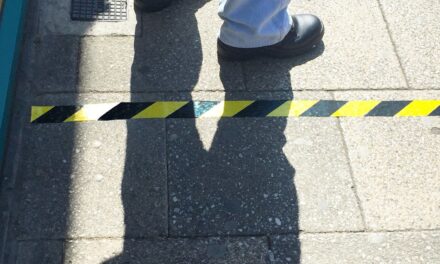You do not need to be a brain surgeon to appreciate why CCTV is such a powerful tool for inspecting pipelines. In fact, the combination of advanced camera technology, software and robotics is such a smart solution for pipeline inspections and problem-solving that CCTV should be called the ‘drain surgeon’!
CCTV takes the guesswork out of pipe inspections, enabling quick, accurate and cost-effective examination of drains, sewers and other pipelines without causing any damage to the infrastructure. It’s entirely non-destructive and with its plentiful benefits, it’s the method of choice for pipeline inspections across a variety of different industries.
For example, a plumbing company or municipality would use CCTV to inspect drain and sewage lines for problems such as roots invading the lines, a build-up of sediment, blockages from foreign objects or corrosion and wear. A property developer would use the technology to ascertain the condition of drains and pipelines before committing to a large capital purchase. An oil and gas company would use remotely operated cameras mounted on robotic crawlers to investigate vital pipelines for possible damage or contamination which may pose significant operational or safety risks.
These technologically advanced yet durable instruments capture high-quality data-rich images and video and are supported by user-friendly software with a host of intuitive features to boost productivity, protect assets and help ensure safety and quality. The CCTV camera is connected to a computer and it feeds data and images back to the operator in real-time with information stored for referencing at a later date.
These remote visual inspection (RVI) tools come in a wide variety of configurations with different capabilities to meet the rigorous demands of many different industrial inspection environments including pipes, tubes, engines, turbines, boilers, mainline sewers and condensers. For example, there are CCTV cameras that provide a panoramic 3600 3D view of a pipeline, some which are specifically designed to survey laterals in sewer lines whilst others offer laser profiling. These highly advanced devices work by projecting a laser ring onto the internal conduit to collect precise data about pipe diameter, misaligned pipes, erosion, damage, leaks, fractures, lateral protrusions, accumulated debris and the formation of a crust or scale.
Importantly, CCTV is a very cost-effective inspection method and there are a number of reasons for this, including:
• No costly or time-consuming excavation is required
• Problems are located, identified and solved quickly, thereby reducing costs and increasing productivity
• Preventative repairs can be done as a result of the information collected by the camera
• Minor faults can be sorted out before they turn into expensive, major issue
• Identifies issues accurately the first-time, thereby avoiding unnecessary costs involved with incorrect diagnosis of a problem
In addition to the cost savings, here’s a brief summary of a further six benefits of this easy-to-use yet highly specialised technology:
1. Completely non-destructive
2. Fast and precise
3. Pinpoints accurate location (including depth) of problem
4. Incorporates fully integrated software which enables real-time results and decision-making as well as recordable data for future use/referencing
5. Easy to operate
6. Environmentally friendly
It’s hardly surprising that CCTV is so widely used for remote visual inspection of pipes in both domestic and industrial applications – and with so many different models available, there’s a camera to suit every purpose.
If your operation requires real-time inspection of voids and enclosed structures, then you will benefit from this affordable and highly effective technology. Get in touch with Nexxis, a leading supplier of technical equipment in Australia which offers a range of pipe inspection cameras, mainline sewer inspection cameras and CCTV inspection cameras and which has the industry knowledge and experience to help you find the most workable solution for your particular need. Contact them on 08 9418 4952 or go via their website, nexxis.com.au to see their comprehensive range of non-destructive testing and RVI equipment.

